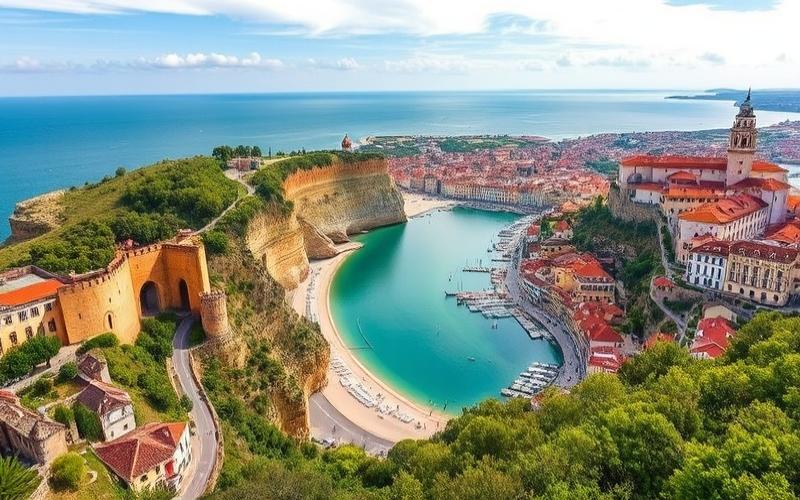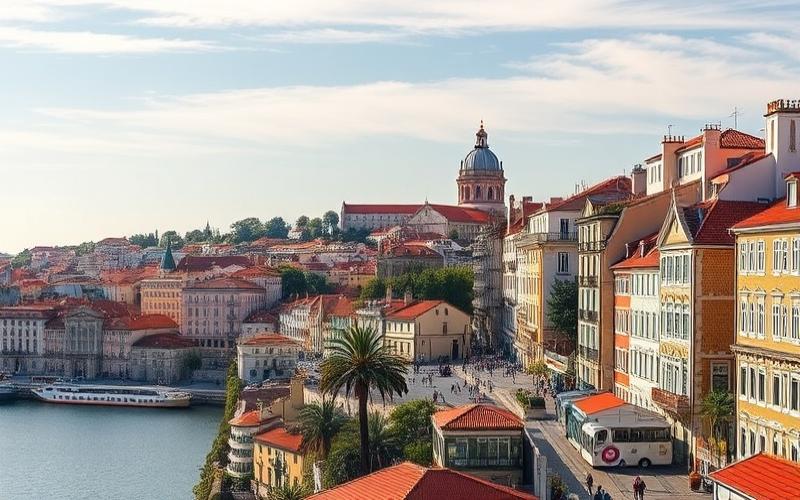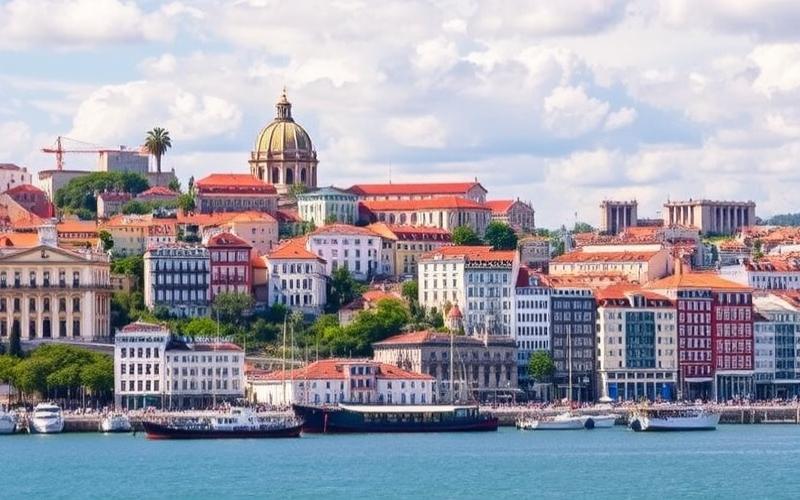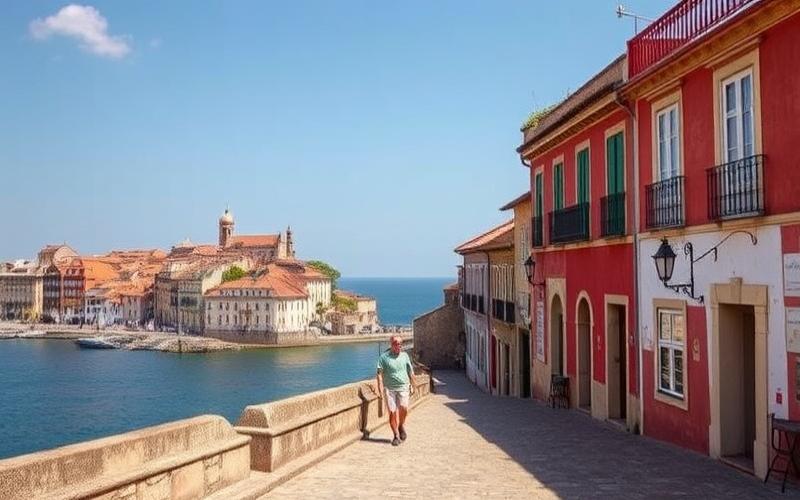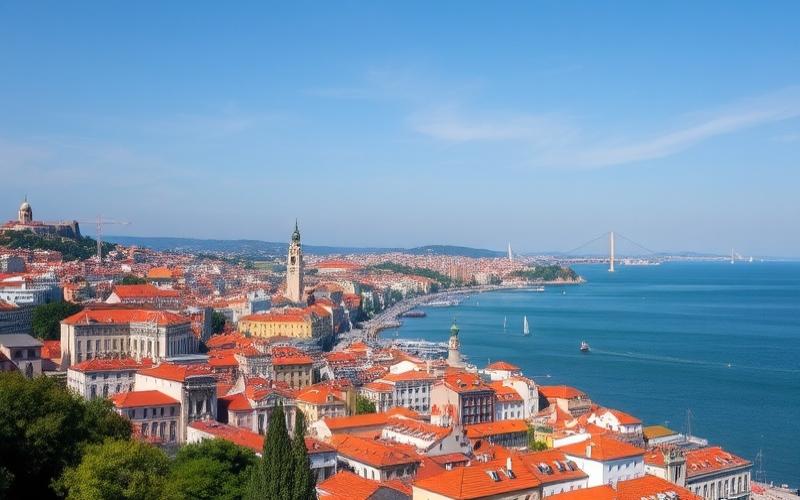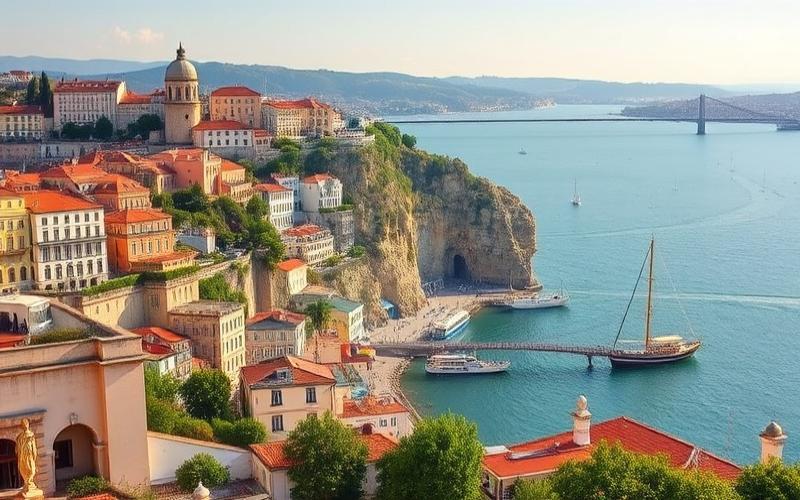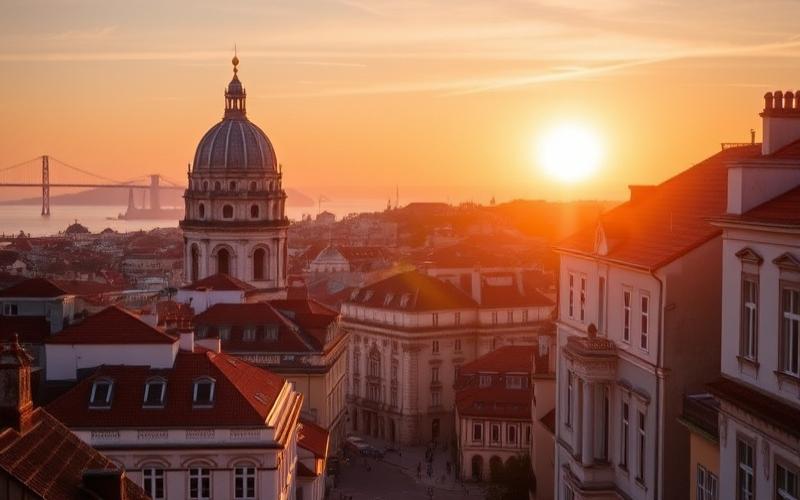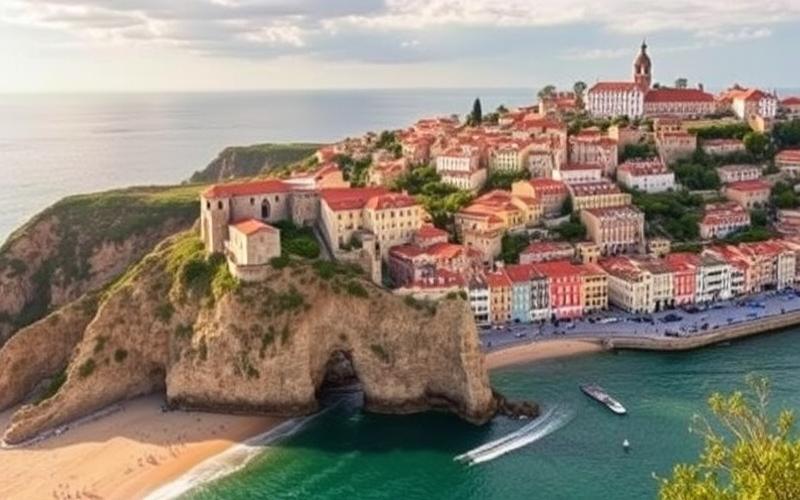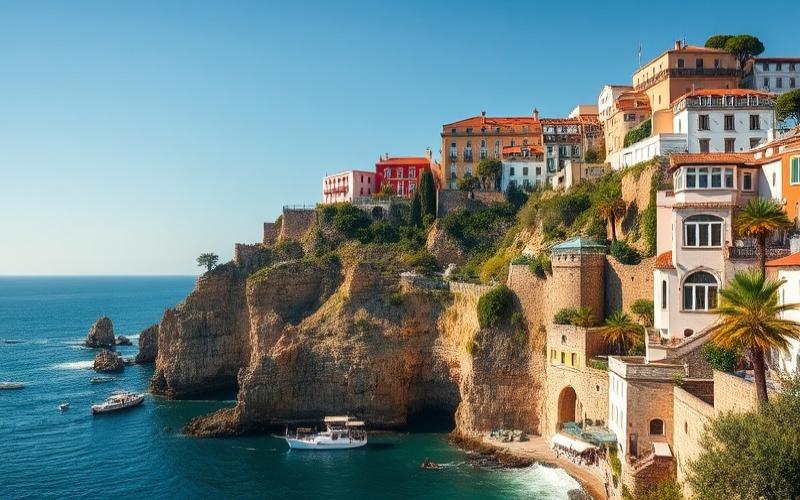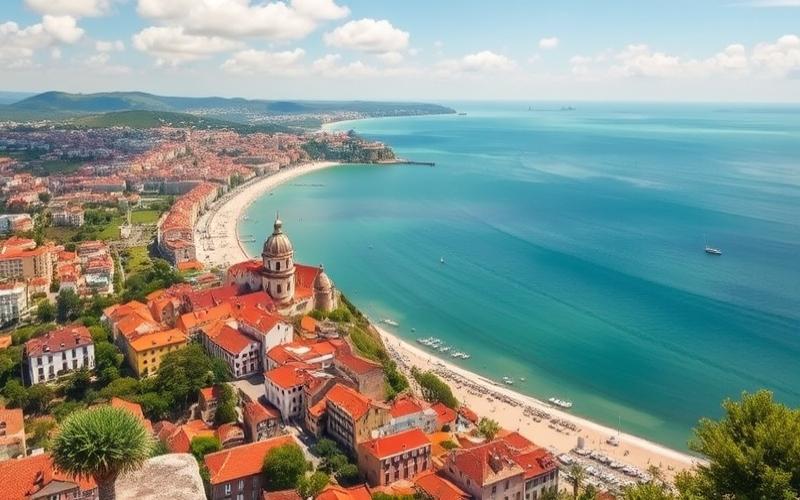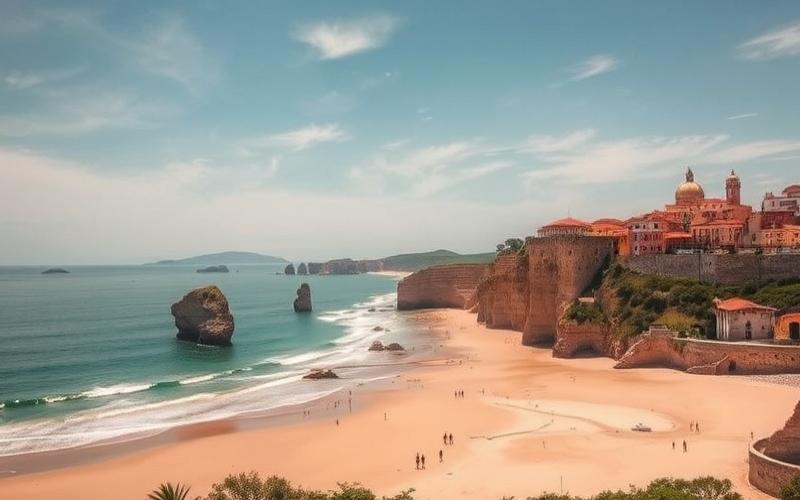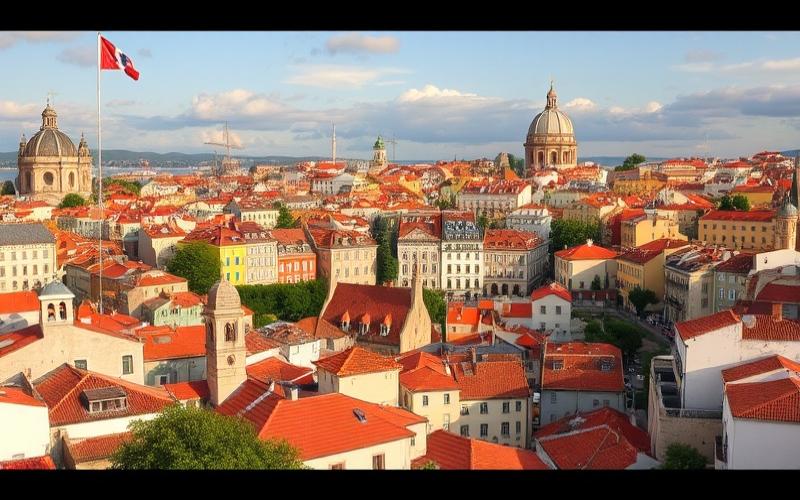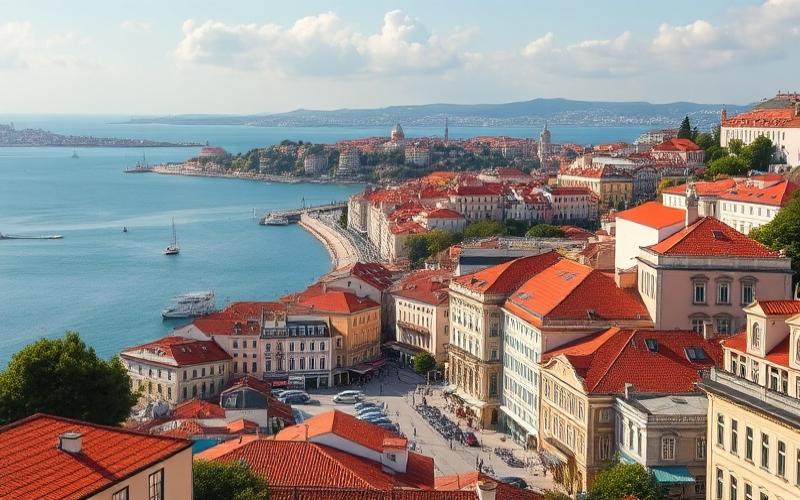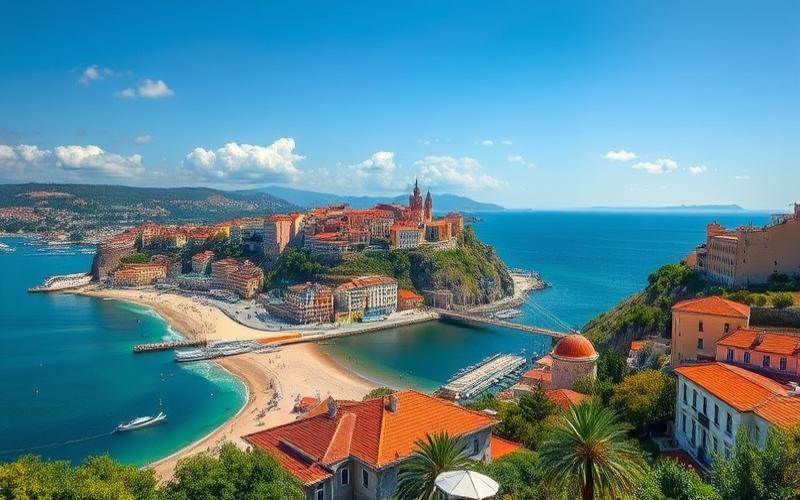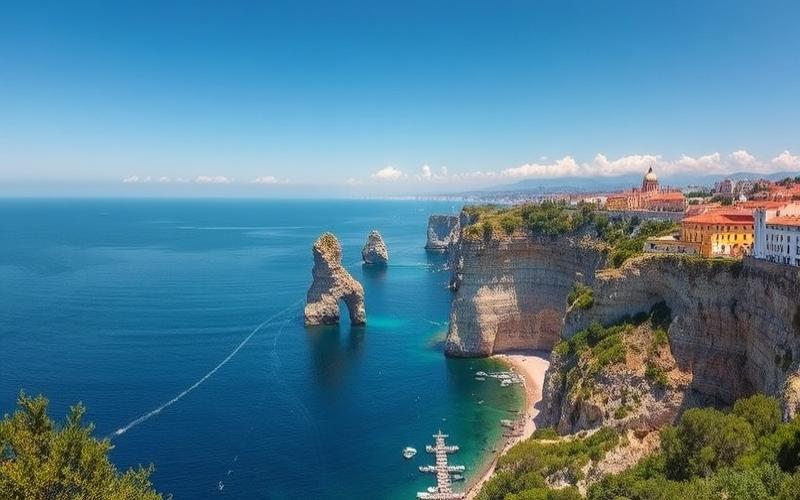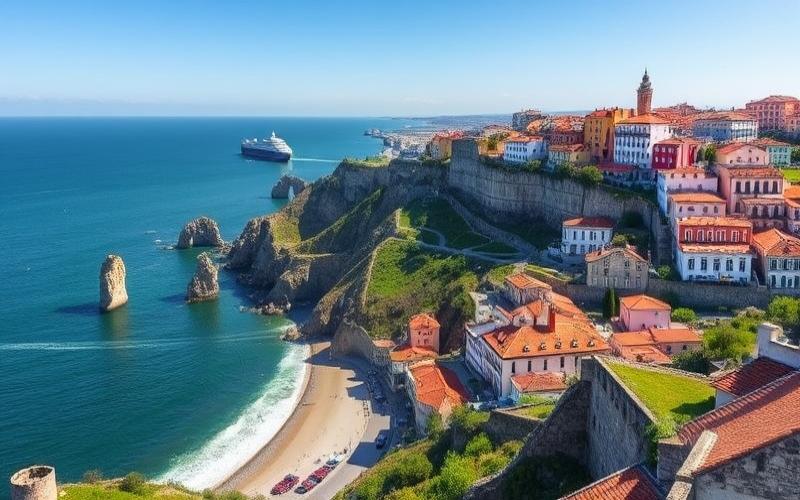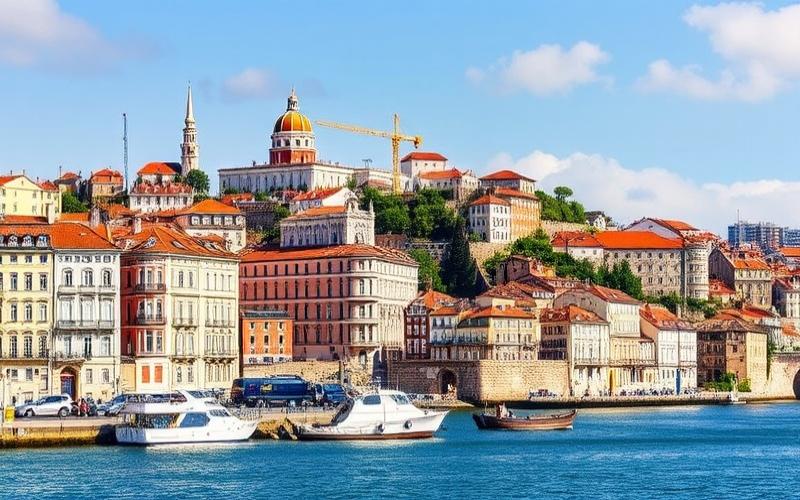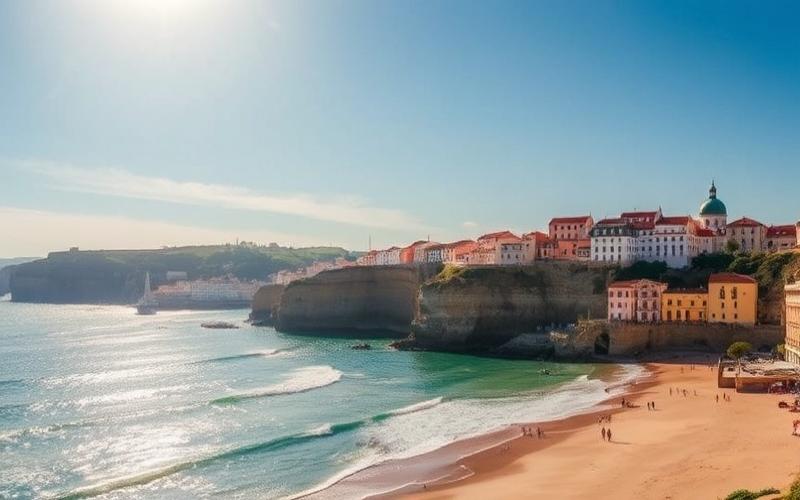
 Published on and written by Cyril Jarnias
Published on and written by Cyril Jarnias
Moving to Portugal means immersing yourself in a rich culture where religion, though subtle in daily life, plays an important role in society and traditions. For newcomers, understanding local religious practices is essential for harmonious integration and avoiding cultural missteps. This article will guide you through the subtleties of religious life in Portugal, helping you navigate this unique cultural landscape with respect and open-mindedness.
The Portuguese Religious Landscape: Between Catholic Tradition and Secular Modernity
Portugal, a country with a long Catholic history, today presents an evolving religious face. Although Catholicism remains predominant, Portuguese society has become considerably more secular in recent decades.
A Changing Catholic Majority
According to recent statistics, approximately 81% of the Portuguese population identifies as Catholic. However, this figure masks a more nuanced reality. Regular religious practice involves a much smaller proportion of the population, estimated at less than 20%. For many Portuguese, Catholicism is more about cultural identity than devout practice.
An Increasingly Secular Society
The 1976 Portuguese Constitution established the separation of Church and State, guaranteeing freedom of worship. This secularism is reflected in daily life, where ostentatious religious displays are rare in public spaces. Younger generations, in particular, tend to distance themselves from traditional religious practices.
Growing Religious Diversity
Although in the minority, other religious communities are present in Portugal. These include Protestant, Muslim, Jewish, and Buddhist communities, mainly in large cities like Lisbon and Porto. This growing diversity reflects the gradual openness of Portuguese society.
Good to Know:
Despite the secularization of society, Catholic holidays remain important moments in the Portuguese calendar, often celebrated as much for their cultural aspect as their religious one.
The Impact of Religious Practices on Daily Life in Portugal
For a newly arrived expatriate in Portugal, the influence of religion on daily life may seem subtle at first. However, it manifests in various ways, shaping the pace of life and social interactions.
The Religious Holiday Calendar
Catholic holidays still largely shape the Portuguese calendar. Christmas (Natal) and Easter (Páscoa) are the most important celebrations, leading to family gatherings and specific culinary traditions. Other holidays like Saint Anthony’s Day in Lisbon or Saint John’s Day in Porto are occasions for popular festivities blending sacred and secular elements.
The Importance of Family Traditions
Religion still strongly permeates Portuguese family traditions. Baptisms, weddings, and funerals are often celebrated according to Catholic rites, even among less practicing families. These events are opportunities for large family gatherings and constitute important moments in social life.
Architecture and Heritage
Portugal’s Catholic heritage is reflected in its rich architectural patrimony. Churches, convents, and monasteries dot the urban and rural landscape, attracting both the faithful and tourists. For many Portuguese, these places represent cultural heritage to be preserved, beyond their religious dimension.
Education and Values
Although public education is secular, Christian values continue to subtly influence education and social norms in Portugal. Solidarity, respect for elders, and the importance of family are values strongly rooted in Portuguese society, finding their roots in Catholic tradition.
Good to Know:
Even though regular religious practice is declining, many Portuguese maintain an attachment to Catholic traditions for major life events.
Main Religious Holidays in Portugal: A Guide for Expatriates
For an expatriate in Portugal, understanding and participating in local religious holidays can be an excellent way to immerse yourself in the country’s culture. Here’s an overview of the most important celebrations and their significance:
Christmas (Natal) – December 25
Portuguese Christmas is the quintessential family holiday. Christmas Eve (Consoada) is marked by a traditional family meal, often consisting of codfish (bacalhau) and typical desserts like bolo rei. Midnight Mass (Missa do Galo) remains an important tradition for many families.
Easter (Páscoa) – Variable date (March/April)
Holy Week (Semana Santa) is celebrated fervently throughout Portugal. Good Friday processions are particularly impressive in cities like Braga. Easter Sunday is an occasion for family reunions and festive meals.
Saint Anthony’s Day (Santo António) – June 13
In Lisbon, Saint Anthony’s Day gives rise to major popular celebrations. The streets of the capital come alive with music, dancing, and food stalls. It’s also the occasion for collective weddings, a tradition cherished by Lisbon residents.
Saint John’s Day (São João) – June 23-24
In Porto, Saint John’s Night is one of the liveliest of the year. Residents take to the streets to celebrate, amusing themselves by tapping each other on the head with plastic hammers, a surprising local tradition for the uninitiated.
Our Lady of Fátima Feast – May 13 and October 13
The Sanctuary of Fátima attracts thousands of pilgrims during celebrations commemorating the Marian apparitions of 1917. These days are marked by impressive candlelight processions.
All Saints’ Day (Dia de Todos os Santos) – November 1
This day is traditionally dedicated to visiting cemeteries to honor the memory of the deceased. It’s an important moment of family reflection in Portuguese culture.
Good to Know:
Even if you’re not a believer, respectfully participating in these celebrations can be an excellent way to integrate and understand the local culture.
Behavioral Codes and Adaptations for Expatriates
For an expatriate in Portugal, respecting local religious sensitivities is essential for successful integration. Here are some tips for navigating this cultural landscape tactfully:
Respect for Places of Worship
When visiting churches or sanctuaries, wear decent attire (avoid very short shorts and bare shoulders). Speak quietly and turn off your cell phone. If a service is in progress, avoid moving around or taking photos.
Participation in Celebrations
If you’re invited to participate in a religious ceremony (baptism, wedding, funeral), don’t hesitate to ask for advice on appropriate behavior. Even if you don’t share the beliefs, your respectful presence will be appreciated.
Discussions About Religion
Although Portuguese society is generally open, avoid direct criticism of the Catholic religion or any other belief. Tolerance and mutual respect are important values in Portugal.
Periods of Fasting and Celebration
During Lent and Holy Week, be aware that some Portuguese may observe fasting or abstinence practices. Respect these choices without feeling obligated to follow them yourself.
Religious Holidays
Take the religious holiday calendar into account in your professional and personal planning. Some services may be reduced during these periods, and it’s common for businesses to close early on the eve of major holidays.
Good to Know:
Portuguese society is generally tolerant of different beliefs. Your respect for local traditions will be appreciated, even if you don’t personally share them.
Religious Freedom and Resources for Expatriates in Portugal
Portugal, as a secular state, guarantees freedom of worship to all its residents, including expatriates. This openness offers numerous possibilities for practicing your religion or exploring new spiritualities.
Legal Framework of Religious Freedom
The Portuguese Constitution ensures freedom of conscience, religion, and worship. No religion has official status, although Catholicism benefits from special historical recognition. Religious communities are free to organize and practice their worship in accordance with the country’s laws.
Diversity of Places of Worship
- Protestant churches (Anglican, Evangelical, etc.)
- Mosques and Islamic centers
- Synagogues
- Buddhist temples
- Hindu centers
These communities often offer services in multiple languages, facilitating expatriate integration.
Associations and Support Groups
Many religious and cultural associations exist to help expatriates practice their faith and meet others who share their beliefs. These groups can be an excellent resource for integration and building a social network.
Religious Education
For expatriate families, it’s possible to find religious schools or extracurricular religious education classes for various faiths. Public education also offers an option for Catholic moral and religious education, but this is not mandatory.
Celebration of Non-Catholic Holidays
Although the official calendar is based on Catholic holidays, employers are generally open to arrangements allowing employees to celebrate their own religious holidays.
Good to Know:
Many embassies and consulates in Portugal can provide information about religious communities and available resources for expatriates from their country.
Conclusion: Embracing Religious Diversity in Portugal
Moving to Portugal offers a unique opportunity to discover a country where Catholic traditions and secular modernity coexist harmoniously. Understanding and respecting local religious practices is an essential key to successful integration into Portuguese society.
Whether you’re a believer or not, open-mindedness and curiosity toward local traditions will allow you to fully experience Portuguese culture. Religious holidays, beyond their spiritual dimension, are moments of sharing and conviviality that shape the country’s social life.
As an expatriate, you’ll benefit from a legal framework guaranteeing your freedom of worship, while having the opportunity to participate in local celebrations. This immersion in Portuguese culture, tinged with mutual respect and tolerance, will undoubtedly enrich your expatriate experience.
Remember that each region of Portugal has its own traditions and celebrations. Don’t hesitate to ask locals for information and participate in your community’s events. It’s often during these moments of sharing that the strongest bonds and most lasting memories of your stay in Portugal are created.
Good to Know:
The best way to understand and appreciate local religious practices is to remain open, curious, and respectful. Your positive attitude will always be appreciated by your Portuguese hosts.
Disclaimer: The information provided on this website is for informational purposes only and does not constitute financial, legal, or professional advice. We encourage you to consult qualified experts before making any investment, real estate, or expatriation decisions. Although we strive to maintain up-to-date and accurate information, we do not guarantee the completeness, accuracy, or timeliness of the proposed content. As investment and expatriation involve risks, we disclaim any liability for potential losses or damages arising from the use of this site. Your use of this site confirms your acceptance of these terms and your understanding of the associated risks.


